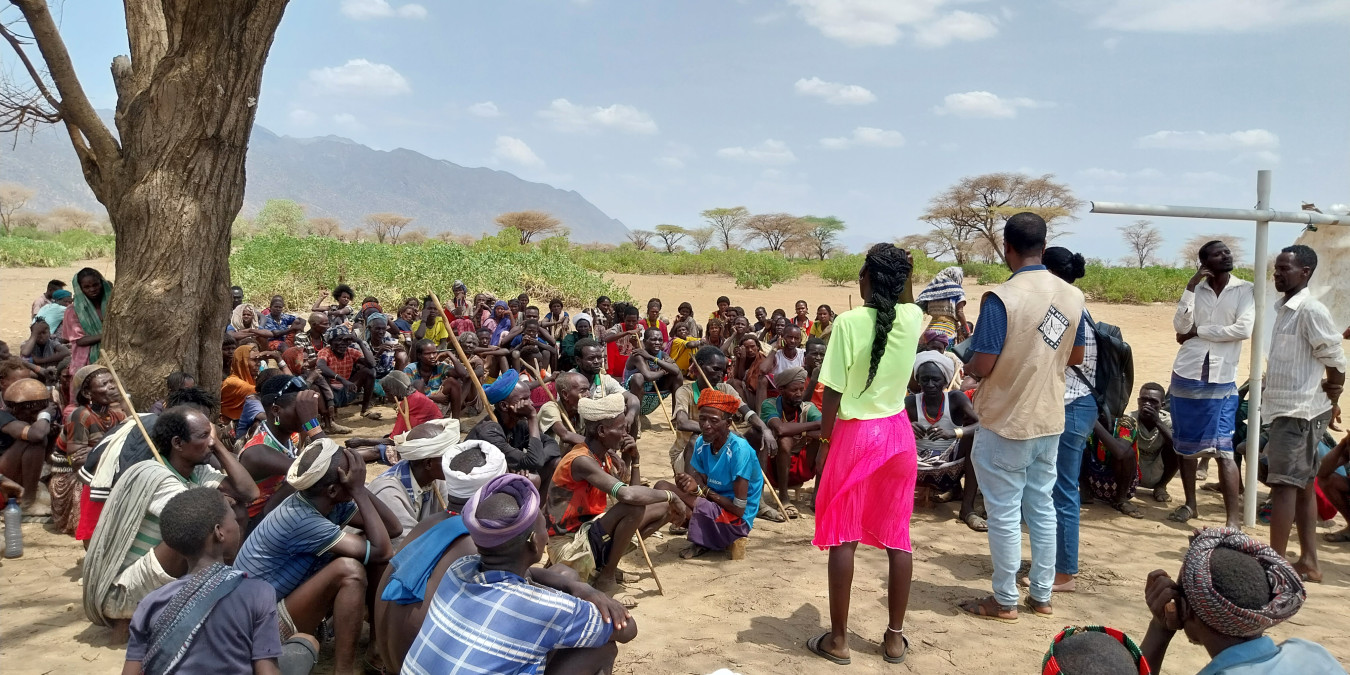Access to Safe Water Changes Lives
Published: Jan 15, 2023 Reading time: 2 minutes Share: Share an articleEthiopia has made impressive progress in ensuring easy access to safe drinking water for its people over the past 20 years. However, the impact of climate change and persistent water shortages complicate the situation. Water, sanitation, and hygiene remain top priorities in Ethiopia, and thanks to the support of the European Union, we are able to provide life-saving support to even the most vulnerable people.

Climate change has significantly exacerbated water shortages in Ethiopia, amplifying the challenges faced by its population. The country's geographical location and reliance on agriculture make it particularly vulnerable to the adverse effects of climate change.
People in Need, with generous funding from the EU, is able to provide life-saving services, including the renovation of water systems, the construction of new water schemes, the restoration of shallow wells and boreholes. In total, over 130,000 individuals have benefited from the repairs of more than 70 water systems in the Konso Zone, South Omo Zone, and the Oromia region.
To ensure the sustainable operation of water systems, we have established 71 WASH committees comprised of more than 374 members, both men and women. Each committee member has undergone comprehensive training, covering topics like administration, maintenance, and financial management. The training has also equipped them with the necessary skills to effectively manage local water sites.
Financial assistance has also been provided to vulnerable individuals to address their emergency needs, including food, clothing, and hygiene supplies. In total, over 42,000 people have received cash support amounting to 4500 ETB (75 EUR) for a period of three months. Cash distribution specifically targets the most vulnerable groups such as the elderly, persons with disabilities, and families with multiple children.
Our aim is to raise awareness about the importance of proper hygiene and sanitation practices. To achieve this, we have organised large-scale training sessions focused on disease prevention (including accurate information about COVID-19), the safe disposal of human waste, effective usage of home water treatment chemicals, and safe water storage. Additionally, permanent latrines have been constructed at medical facilities in the intervention areas.
During the course of the project, we have assisted over 14,000 individuals. Hygiene kits, containing items such as washing and laundry soap, jerry cans, and washing bins have also been distributed to households for a period of three months. Furthermore, dignity kits have been provided to families with women of reproductive age.
People in Need has been operating in Ethiopia for 20 years, and through our partnership with the European Union, we are more effectively able to address the needs of even the most vulnerable Ethiopians.
The project was supported by the European Union.


